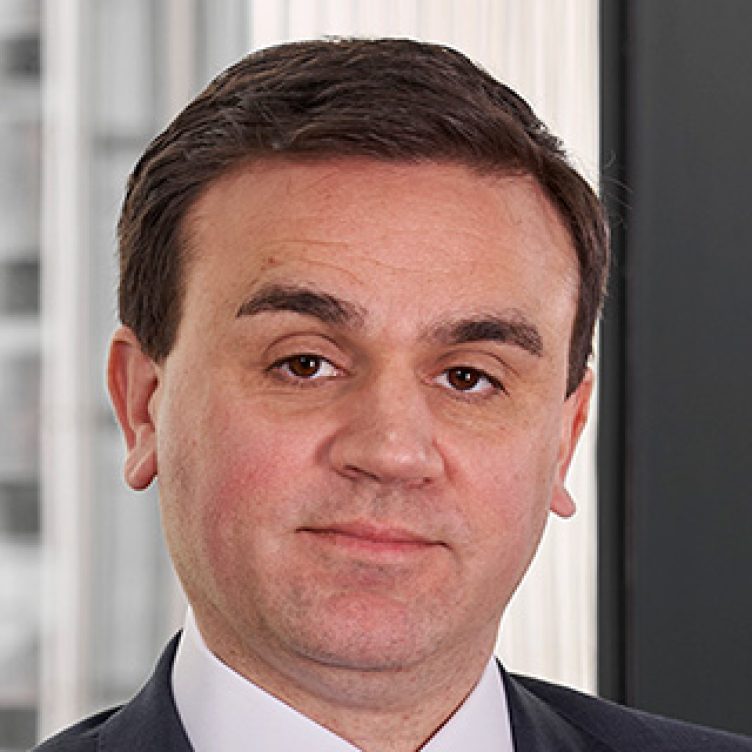On 26 September 2023, our Insolvency and Asset Recovery team hosted a seminar explaining the emerging and developing types of disputes focussed on insolvent estate recoveries.
The session, chaired by Head of Department Alex Jay, outlined the various kinds of claims emerging in the disputes landscape, and provided an update on some of the most important contentious insolvency cases of recent years.
Fraudulent trading
Partner Tim Symes began with an overview of fraudulent trading as it is applies to third parties like banks. Where s213 of the Insolvency Act addresses fraudulent trading in liquidations, s2467A does the same for administrations. Fraudulent trading arises where the business of the company was carried on with the intent:
- to defraud its creditors; and/or
- to defraud creditors of any other person(s); and/or
- for any other fraudulent purpose(s).
A claim can target any person provided they had intent to defraud, were knowingly a party to the fraud, and were acting dishonestly.
Tim also discussed the potential liability of outsiders, and the importance of attributing intention to defraud on the defendant third party. While attribution depends on the context and purpose within each claim, caselaw has established that a non-director employee’s knowledge can be attributed to a bank, and a bank can be subject to s213 as an outsider. The scope for an outsider to be liable under s213 may yet expand further.
Banking negligence claims arising from fraud
Senior associate Harry Spendlove looked at the increase in the number of Quincecare style negligence claims and potential further developments going forwards. Singularis v Daiwa was a blockbuster case that put Quincecare claims on the map for insolvency practitioners (IPs), and the appeal process cleared a number of legal obstacles for claims of this nature.
Negligence claims are now a viable primary or alternative claim to recover assets from third parties implicated in facilitating a fraud, where previously a victim may only have been able to claim dishonest assistance. The Supreme Court judgment in Philipp v Barclays addressed wrinkles in the original legal analysis underpinning Quincecare claims and puts the cause of action on a firmer footing.
Key developments to expect in this area include:
- the application of the Quincecare duty to a variety of modern banking arrangements and payment methods;
- different variations of the duty to apply to a bank’s actions beyond processing payment instructions;
- claimants seeking to recover consequential losses and/or a variety of losses based on a wider duty owed by banks.
Claims against auditors
Senior associate Natalie Osafo discussed the increase in claims against auditors following the Covid-19 pandemic and key trends in recent UK cases, many of which have resulted in reported multimillion pound claims and settlements.
Auditor claims can be an extremely powerful recovery option for insolvency practitioners to recoup losses of distressed and insolvent businesses and in frauds to maximise returns. Natalie shared practical pointers and legal strategies for successfully addressing some of the challenges which can arise in auditor claims.
Office holders should never underestimate the value of an auditor claim, nor should auditors on the receiving end of such a claim. This is especially true where fraud or other illegal events have occurred which an auditor has failed to spot or has deliberately ignored.
Insurance claims in insolvent estates
Head of Policyholder Disputes Aaron Le Marquer outlined insurance claims in insolvent estates. Business interruption claims arising from the Covid-19 pandemic remain the most pressing concern, with many valid claims remaining unclaimed. Aaron reviewed such claims to date, before describing other kinds of insurance claims relevant to insolvency practitioners.
Covid BI claims have built out of the initial FCA Test Case, in which the Supreme Court concluded that individual cases of Covid-19 within the relevant radius of insured premises were concurrent causes of closures and restrictions, and consequent business interruption losses. Subsequent cases have extended the extent of coverage for policyholders, including the ‘At the Premises’ test case won by Aaron and his team. Upcoming cases may continue to unlock coverage for businesses affected by the pandemic, including those which have gone into administration.
Other insurance policies relevant in an insolvency context include those covering political risk, cyber and property damage. Claims may be brought concurrently against insurers and brokers for negligence where a duty of care to the policyholder was broken. Another fertile insurance-related area for insolvency practitioners is director claims: the Third Party Rights Against Insurers Act 2010 may provide direct route of recovery against insurers in the case of insolvent directors.
Recovery by insolvent estates against sovereign states
Alejandro Garcia, a partner in our International Arbitration team, discussed bringing a claim against a state under an investment treaty, a powerful option for companies that have become insolvent due to the wrongful actions or omissions of a state executive, legislative or judiciary. Such claims can pay off to insolvency practitioners and, more broadly, stakeholders in insolvent companies as these ultimately constitute assets that may have a significant value.
The protections afforded by most investment treaties safeguard foreign investors from a state’s actions and omissions. These protections are granted as long as the investor in question has a relevant nationality and the investments meet certain requirements. Disputes under investment treaties are usually resolved before international tribunals, rather than before the local courts of the offending state.
In one example, Alejandro advised the insolvency practitioner of an insolvent European company in respect of an investment treaty claim. The company became insolvent due to significant and unexpected changes to the regulatory framework of the country where it had invested. As a result, the company suffered losses of c €200 million. Because the company was insolvent, it was imperative to avoid creating new debt under applicable law, so third party funding was secured and supplemented by after the event (ATE) insurance.
Litigation costs and funding
Risk and Funding Partner Julian Chamberlayne discussed the range of alternative fee agreements and structures available on the market, including conditional fee, damages based and global contingency fee agreements. He highlighted the Stewarts Litigate ATE offering, providing commercial disputes clients with rapid access to comprehensive ATE insurance with market-leading policy wording and paid premiums lower than typical ATE market rates.
Julian also discussed the evolving third party litigation funding market, including the enforcement and asset recovery involved in third party funding arrangements. He highlighted the importance that the likely duration of the dispute has on the availability and price of funding in the current economic climate.
All alternative fee agreements offer a balance between risk and reward, with clients needing to consider factors including the fact that options removing or reducing the burden on the client to fund their own claim inevitably come with a greater cost at the conclusion. Julian concluded with the point that it is helpful to clients, lawyers, funders and ATE insurers for there to be modelling of the likely range of net outcomes at different key stages in the claim.
Directors’ duties post-Sequana
Associate Alice Glendenning reviewed Hunt v Singh [2023]. Mr Justice Zacaroli considered and applied the Supreme Court’s earlier decision in BTI v Sequana, in which the court had confirmed the existence of the creditor duty, clarified its scope and when it is engaged.
In both decisions the tests formulated for the creditors’ duty to be engaged require the director to have knowledge of the company’s financial position. In Sequana the court’s majority ruling held that actual or constructive knowledge was necessary and consistent with liability for wrongful trading. While in dissenting opinions Lord Reed and Lady Arden preferred to leave the question of knowledge for full submissions, it looks likely that the requirement for knowledge is here to stay for the time being.
While this may be another evidential hurdle to prove in establishing a claim for misfeasance, ultimately the onus will be on the defaulting director to prove that it was not possible for them to identify the true financial position of the company. Ultimately directors are under a duty to inform themselves about a company’s affairs, and it will be no defence in the absence of third party fraud to say that they simply didn’t know.
S.423 of Insolvency Act 1986
Associate Jack Barlow reflected on the impact of the Invest Bank PSC v El Husseini and others [2023] EWCA Civ 55 decision for claims under s.423 of the Insolvency Act 1986. S.423 relates to transactions entered into at an undervalue, resulting in creditors suffering loss.
The case considered two questions. First, whether an individual who allegedly caused a company which he owned and controlled to transfer its assets to third parties with a view to prejudicing creditors could be liable under s.423. The Commercial Court had determined that liability could not be ascribed to an individual in the scenario unless they acted on their own behalf rather than as an instrument of the company. However, the Court of Appeal ruled that although a company can only act through people and in law their acts are treated as acts of the company, it does not follow that there are no consequences for individuals. Because the purpose of s.423 is to protect victims with a wide-ranging scope, the Commercial Court’s narrow interpretation was deemed inappropriate.
Second, the court considered whether there is a requirement for assets to be beneficially owned by an individual for the matter to fall within s.423. The Court of Appeal here agreed with the Commercial Court that there is no requirement in statute for assets to be beneficially held by the individual for s.423 to apply.
Given how frequently the use of corporate vehicles and questions of beneficial ownership arise in civil fraud clams, the decision provides an important clarification on the scope of s.423, significantly widening it in favour of victims.
Immunity of IPs and fixed vs floating charge
Rounding out the session, associate Aleks Valkov reviewed Denaxe Ltd v Cooper [2023] EWCA Civ 752 and Re Avanti Communications Ltd (In Administration) [2023] EWHC 940.
In the first case, receivers applied under CPR 64.2 seeking the court’s sanction of the proposed sale of certain of Denaxe’s assets, a sanction which was granted. Denaxe then brought claims for breach of duty and sale at an undervalue against the receivers, who sought to rely on their immunity. The Court of Appeal concluded that though the term ‘immunity’ is widely used to describe protection afforded to trustees and insolvency office holders in cases where the court sanctions a proposed exercise of their powers, the true protection was the doctrine of res judicata (ie preventing a party from re-litigating any issue already litigated). Applying this to the facts of the case, Denaxe could not seek to relitigate in subsequent proceedings, an issue which had already been determined by the court as part of the sanctions application.
In the second case, the joint administrators of Avanti Communications applied to the court to determine whether certain assets sold by the company were secured by a fixed or floating charge. The court clarified that a total prohibition on disposal was not required for a charge to be characterised as fixed, and that it was not sensible or appropriate to provide a clear description in relation to the terms as caselaw provided ample guidance.
If you require assistance from our team, please contact us or alternatively request a call back from one of our lawyers by submitting this form.
Subscribe – In order to receive our news straight to your inbox, subscribe here. Our newsletters are sent no more than once a month.















